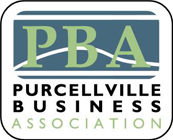13 Interview Questions That Could Land You in Legal Hot Water
By Daniel Abramson, President, StaffDynamics
In a nutshell, employers should not be asking questions about race, gender, religion, marital status, age, disabilities, ethnic background, country of origin, sexual preferences or age.
NATIONALITY
1. What you can’t ask: Are you a U.S. citizen? What to ask instead: Are you authorized to work in the U.S.?
2. What you can’t ask: What is your native tongue? What to ask instead: What languages do you read, speak or write fluently?
3. What you can’t ask: How long have you lived here? What to ask instead: What is your current address and phone number? Do you have any alternative locations where you can be reached?
RELIGION
4. What you can’t ask: What religion do you practice? What to ask instead: What days are you available to work?
5. What you can’t ask: Which religious holidays do you observe? What to ask instead: Are you able to work with our required schedule?
6. What you can’t ask: Do you belong to a club or social organization? What to ask instead: Are you a member of a professional or trade group that is relevant to our industry?
AGE
7. What you can’t ask: How old are you? When did you graduate high school? What to ask instead: Are you over the age of 18?
8. What you can’t ask: How much longer do you plan to work before you retire? What to ask instead: What are your long-term career goals?
MARITAL AND FAMILY STATUS
9. What you can’t ask: Is this your maiden name? “That’s a beautiful ring. How long have you been married?” What to ask instead: Have you worked or earned a degree under another name?
10. What you can’t ask: Do you have or plan to have children? What to ask instead: Are you available to work overtime on occasion? Can you travel?
11. What you can’t ask: Can you get a babysitter on short notice for overtime or travel? What to ask instead: You’ll be required to travel or work overtime on short notice. Is this a problem for you?
12. What you can’t ask: Do you have kids? What to ask instead: What is your experience with “x” age group?.
13. What you can’t ask: If you get pregnant, will you continue to work, and will you come back after maternity leave? What to ask instead: What are your long-term career goals?
NOTE: This list offers only some very broad guidelines and is not all inclusive. Check with your company’s HR department to see if your state or locality, or even your company, has additional restrictions on what you may ask.
Daniel Abramson, CTS, is President of StaffDynamics and Vice President of the Purcellville Business Association. He can be reached at Daniel@staffdynamics.biz or 540-338-1297
Top 10 Must-Dos for a Small Business in a Challenging Economy
By Jim Bowman, Senior Vice President, John Marshall Bank
The ec onomy is in a state of flux right now. Everywhere in the news we read about a volatile stock market, the stress on our retirement plans, foreclosures, high energy costs, banks in trouble…or causing trouble. Where’s the good news?
onomy is in a state of flux right now. Everywhere in the news we read about a volatile stock market, the stress on our retirement plans, foreclosures, high energy costs, banks in trouble…or causing trouble. Where’s the good news?
I’m one who believes the glass is always half-full. There are plenty of bright spots out there. Small businesses can roll up their sleeves and do plenty to weather the financial storm. Here is my top 10 list of suggestions for small business:
1. Don’t panic. Maintain a focus on your business and keep a good sense of humor. The economy will have to get better. When you look at our history of bad economic performance in the United States, we have always survived financial crisis only to come out stronger.
2. Network like crazy. Go to PBA and Loudoun Chamber events, civic clubs, church meetings…most are fairly inexpensive and offer you the opportunity to meet with other business owners. Find out what they are doing to get through the challenges presented by this economy and share what you have done. You may pick up new ideas or, better yet, a new customer.
3. Cash management. Stay liquid. Having good cash flow is critical to get through times when accounts receivables are diminishing. If cash flow is good and you don’t need a line of credit, start now to put one in place. A line of credit to tap when things get tight can be a lifesaver. But don’t wait until things are tight to try and get a line of credit.
4. Be aggressive with receivables. Many small business owners hesitate to press for payment for fear they will lose a client. Look at it this way: If the client isn’t paying promptly for your services, then perhaps it isn’t a client you should keep.
5. Cut spending. Take a look at your discretionary costs and see where you can pare back. If that means fewer lunches or trimming back sponsorships of organizations, then so be it. Once you have looked at the discretionary expenses, concentrate on your fixed costs. For example, if you have the option to lease vs. purchase – lease. Hold on to your cash as much as possible. If your bank offers remote deposit services and you qualify, do it. This save time and gas. Institute a telecommuting program for employees who can be trusted to work from home so office costs are minimized. Diligently examine the books to see where costs can be cut.
6. Be aware of bank fees. Have you noticed the fees your bank charges? You should talk to your bank about removing these fees, or at least reducing them.
7. Talk to your customers. Remember, it’s not just you and your business that is affected by the poor economy. We’re all in this together. Reach out to your customers and find out what you can do for them. They will appreciate it and besides, you may be able to repackage your products and services to accommodate their needs and pick up additional business.
8. Look for business seminars. The PBA and Loudoun Chamber provide seminars from time-to-time on a variety of topics. Things are constantly changing and it never hurts to attend seminars with content in business practices.
9. Revisit your business plan. When you started your business, you likely began under better economic circumstances. The market has changed, and that means you need to make adjustments accordingly.
10. Meet with your key business partners. Every business has three key business partners: a CPA, an attorney and a banker. You should plan on meeting at least once a year with each to review changes in the business, and get recommendations for changes that you should consider. You should meet with your CPA and attorney before year-end to take advantage of expiring tax breaks or plan for future ones. And meet with your banker to discuss changes in your business—those that occurred the previous year and those that you anticipate.
James L. (Jim) Bowman is a lifelong resident of Purcellville who has been very active in Loudoun County business and civic affairs. He is currently president of the Purcellville Business Association, a member of the County of Loudoun Fiscal Impact Committee, and a member of the Purcellville Rotary Club. He is an ex officio board member of the Loudoun County Chamber of Commerce.
Start Off the New Year with a Stronger Online Business Presence
By Kathi Watts, Gallop Web Services
When business owners discuss Search Engine Optimization (SEO) with us what they are basically saying is they want to bring people to their website “now!” and it doesn’t really matter how they get there. Well, it does matter “how” you get people to a site and it also matters “why” you are trying to drive them there in the first place. If visitors go to your website and aren’t satisfied with what they find there then they don’t ultimately become customers. And getting customers is what the SEO game is really all about.
Heading into 2013, here are 5 current trends to consider with regard to your website and your overall on-line business presence.
1.Do you have a Responsive Website? – New to 2012, a responsive website is designed to adjust itself to size when it is viewed on a wide screen monitor, iPad, laptop or smart phone. You can check to see if your own website fits the bill. How? View the website on your computer screen, click to minimize the screen and then click and drag the sides of your browser window to resize the website’s width. If the website still looks good, and is easy to read and understand, then it is probably adequate for today’s web design standards.
2.Consider a Blog on your website – a blog is a great way to start a conversation. If you have ideas or knowledge to share with others why not put it on your own website to attract potential customers? You’ll build your online credibility with not only people, but the search engines as well.
3.Use social media and tie it to your website – If you own or manage a small business and are not using social media, then you are missing out on one of the most cost-effective tools available for promotion, branding and customer service. Twitter, Facebook, YouTube, Pinterest, etc. are all free and user friendly. At the very least, every business should have a Facebook company page! After setting it up, link your website the Facebook page and/or use a widget to feed the posts to your website for viewing.
4.Get on LinkedIn – every businessman and woman should have a LinkedIn account. It’s free networking!
5.Optimize your online presence as much as possible – perform a Google search on your business name to see if and how it is listed. Review the search results to see what’s what then take steps to build or improve your online presence. If you have a storefront, claim your local business listings and optimize the information with more details—business hours, logo, videos. Consult a professional to optimize your website for higher technical functionality, analyze keywords in the content, and increase visibility with the search engines. To see examples of online business listings, do a Google search on “Gallop Web Services, LLC.”
7 Smart Year-End Moves for Business Owners
By Tony Hudimac, Hudimac & Company,CPA, PBA Treasurer
1. If your business is incorporated, consider taking money out of the business by way of a stock redemption if you are in the position to do so. The buy-back of the stock may yield long-term capital gain or a dividend, depending on a variety of factors. But either way, you’ll be taxed at a maximum rate of only 15% if you act this year. If you wait until next year to make your move, your long-term gains or dividends may be taxed at a higher rate if reform plans are instituted or the Bush-era tax cuts expire. And if your adjusted gross income (as specially modified) exceeds certain limits ($250,000 for joint filers or surviving spouses, $125,000 for a married individual filing a separate return, and $200,000 for all others), gains taken next year (along with other types of unearned income, such as dividends and interest) will be exposed to an extra 3.8% tax (the so-called “unearned income Medicare contribution tax”). Keep in mind that you will need expert help to plan and execute an effective pre-2013 corporate distribution.
2. If you are thinking of adding to payroll, consider hiring a qualifying veteran before year-end to qualify for a work opportunity tax credit (WOTC). Under current law, the WOTC for qualifying veterans won’t be available for post-2012 hires. The WOTC for hiring veterans ranges from $2,400 to $9,600, depending on a variety of factors (such as the veteran’s period of unemployment and whether he or she has a service-connected disability).
3. Put new business equipment and machinery in service before year-end to qualify for the 50% bonus first-year depreciation allowance. Unless Congress acts, this bonus depreciation allowance generally won’t be available for property placed in service after 2012 (Certain specialized assets may, however, be placed in service in 2013.)
4. Make expenses qualifying for the business property expensing option. The maximum amount you can expense for a tax year beginning in 2012 is $139,000 of the cost of qualifying property placed in service for that tax year. The $139,000 amount is reduced by the amount by which the cost of qualifying property placed in service during 2012 exceeds $560,000 (the investment ceiling). For tax years beginning in 2013, unless Congress makes a change, the expensing limit will be $25,000 and the investment ceiling will be $200,000. Thus, if you anticipate needing property in early 2013, you may want to push the purchase into 2012 to gain a higher expensing deduction (if you are otherwise eligible to claim it). The time of purchase doesn’t affect the amount of the expensing deduction. You can purchase property late in the year and still get a full expensing deduction. Thus, property acquired and placed in service in the last days of 2012, rather than at the beginning of 2013, can result in a full expense deduction for 2012.
5. If you are in the market for a business car and your taste runs to large, heavy SUVs—those built on a truck chassis and rated at more than 6,000 pounds gross (loaded) vehicle weight—consider buying in 2012. Due to a combination of favorable depreciation and expensing rules, you may be able to write off most of the cost of the heavy SUV this year. Next year, the write-off rules may not be as generous.
6. Set up a self-employed retirement plan if you are self-employed and haven’t done so yet.
7.Increase your basis in a partnership or S corporation if doing so will enable you to deduct a loss from it for this year. A partner’s share of partnership losses is deductible only to the extent of his partnership basis as of the end of the partnership year in which the loss occurs. An S corporation shareholder can deduct his pro rata share of an S corporation’s losses only to the extent of the total of his basis in (a) his S corporation stock, and (b) debt owed to him by the S corporation.


